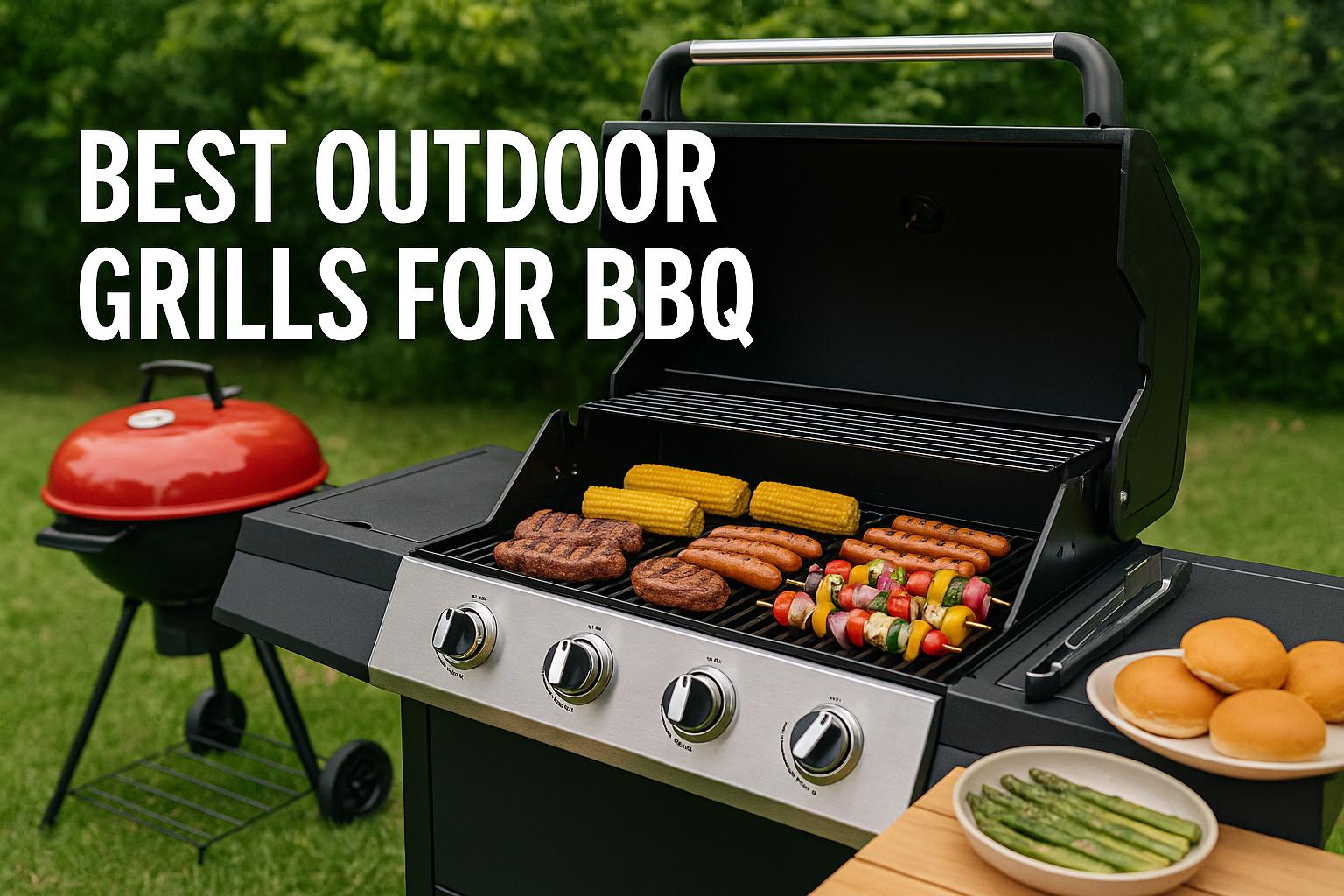Understanding the Types of Outdoor Grills
When exploring the world of outdoor grills, it’s crucial to recognize that not all grills work in the same way or are suitable for every cooking style. The primary types of outdoor grills—gas, charcoal, and electric—each offer unique features that cater to different culinary preferences and environmental settings. Grasping these distinctions can be a game-changer in how you approach your BBQ sessions.
Gas Grills
Gas grills have become a household favorite, largely due to their speed and ease of use. Typically powered by either propane or natural gas, these grills excel at delivering a convenient grilling experience.
Pros of Gas Grills
Gas grills offer several benefits that make them stand out:
Quick Startup: One of the defining features of gas grills is their ability to ignite instantly, reducing the wait time before you start cooking. This efficiency enables you to get your meals ready in record time.
Temperature Control: Gas grills are equipped with precise temperature control systems through built-in knobs, allowing you to adjust the heat to your desired level. This precision is particularly advantageous for gourmet recipes that require exact temperature settings.
Cleaner Cooking: Compared to charcoal grills, gas grills produce less smoke and leave minimal residue, making them a cleaner option for outdoor cooking. This means less post-cooking cleanup and a more pleasant grilling environment.
Cons of Gas Grills
While gas grills have their advantages, they also come with some drawbacks:
Less Smoky Flavor: Gas grills often fall short of delivering the same rich smoky flavor commonly associated with charcoal grilling.
Dependency on Fuel: The need for a steady supply of propane tanks or a natural gas connection can be a limitation, especially in areas where these resources are less accessible or require additional setup.
Charcoal Grills
Charcoal grills are the go-to choice for traditional BBQ lovers who savor the authentic smoky taste. These grills not only excel in flavor but also offer flexibility in cooking methods, making them a versatile choice for BBQ veterans.
Pros of Charcoal Grills
Charcoal grills stand out for several reasons:
Rich Flavor: The quintessential smoky flavor imparted by a charcoal grill is unmatched and is a key reason many barbecue aficionados prefer it. The aroma and taste can elevate simple ingredients to gourmet levels.
Higher Heat: The potential to reach higher temperatures makes charcoal grills ideal for specific cooking techniques, such as searing, which requires intense heat to create the perfect crust on meats.
Portable Models: Many charcoal grills are designed to be lightweight and portable, making them perfect companions for outdoor adventures like camping and picnics. Their mobility adds an element of convenience for those who love to grill on the go.
Cons of Charcoal Grills
These grills can present certain challenges:
Longer Setup Time: Unlike gas grills, charcoal grills require more time to light and heat up properly, which may be a downside for those looking to cook quickly.
Less Precise Temperature Control: Achieving the perfect cooking temperature can be an art form with charcoal grills, requiring practice and patience to manage the heat effectively.
Electric Grills
Electric grills cater to those with space restrictions or regulations that prohibit open flame grilling. They offer convenience but often at the expense of traditional grilling experiences.
Pros of Electric Grills
Electric grills have several selling points:
Ease of Use: Operating an electric grill is as simple as plugging it in, making it user-friendly for those who value straightforward cooking methods.
Versatile Placement: The ability to use electric grills both indoors and outdoors provides flexibility for those living in apartments or homes with limited outdoor space. Additionally, they mitigate concerns about smoke, which is an added advantage in indoor settings.
Cons of Electric Grills
Potential downsides include:
Lack of Smoky Flavor: The inability to generate that classic BBQ aroma can be disappointing for purists who prize a smoky taste.
Reduced Temperature Range: Electric grills often fall short when it comes to reaching the high temperatures required for certain techniques like searing. This limitation can impact the texture and flavor of the grilled items.
Factors to Consider When Choosing a Grill
When on the hunt for the ideal outdoor grill, it is important to evaluate various factors to ensure your purchase meets your specific needs. These considerations can significantly enhance the efficiency, satisfaction, and outcome of your grilling experience:
Size and Cooking Surface Area
The size of your grill should correspond with your cooking needs and available space. If you frequently host large gatherings or have a big family, opting for a grill with a larger cooking surface can accommodate more food at once, making meal preparations smoother and quicker. Conversely, a compact grill might be more appropriate for casual, small-scale grilling.
Portability
If you are an avid traveler or enjoy outdoor adventures, the portability of a grill can be crucial. Lightweight and easily transportable grills ensure that you can bring your cooking outdoors wherever you choose—be it a campsite, park, or beach.
Maintenance Requirements
Grill maintenance can impact the ease of ongoing use and the longevity of the grill. Different grills have varying maintenance needs; gas grills, for instance, might require periodic safety checks of fuel lines, whereas charcoal grills demand regular cleaning of ash residue.
Cooking Preferences
Your personal taste in grilled flavors and cooking styles will play a significant role in choosing the right grill. A charcoal grill will serve those who cherish smoky flavors well, while a gas or electric grill may appeal to you if convenience and cleaner cooking are your top priorities.
Available Space
Space plays an important role in deciding the type of grill that will best fit your living situation. Ensure that your choice of grill aligns with the dimensions and characteristics of your outdoor or indoor area to avoid logistical challenges and ensure safe operation.
In conclusion, choosing the right grill involves evaluating your personal preferences, lifestyle, and spatial limitations. By thoroughly understanding the attributes and trade-offs of gas, charcoal, and electric grills, you can make an informed decision that complements your grilling ambitions and culinary skills. Enhance your BBQ experience by picking a grill that aligns with your preferences and needs, bringing your outdoor cooking endeavors to new heights.




